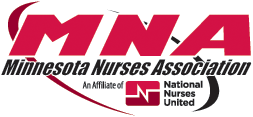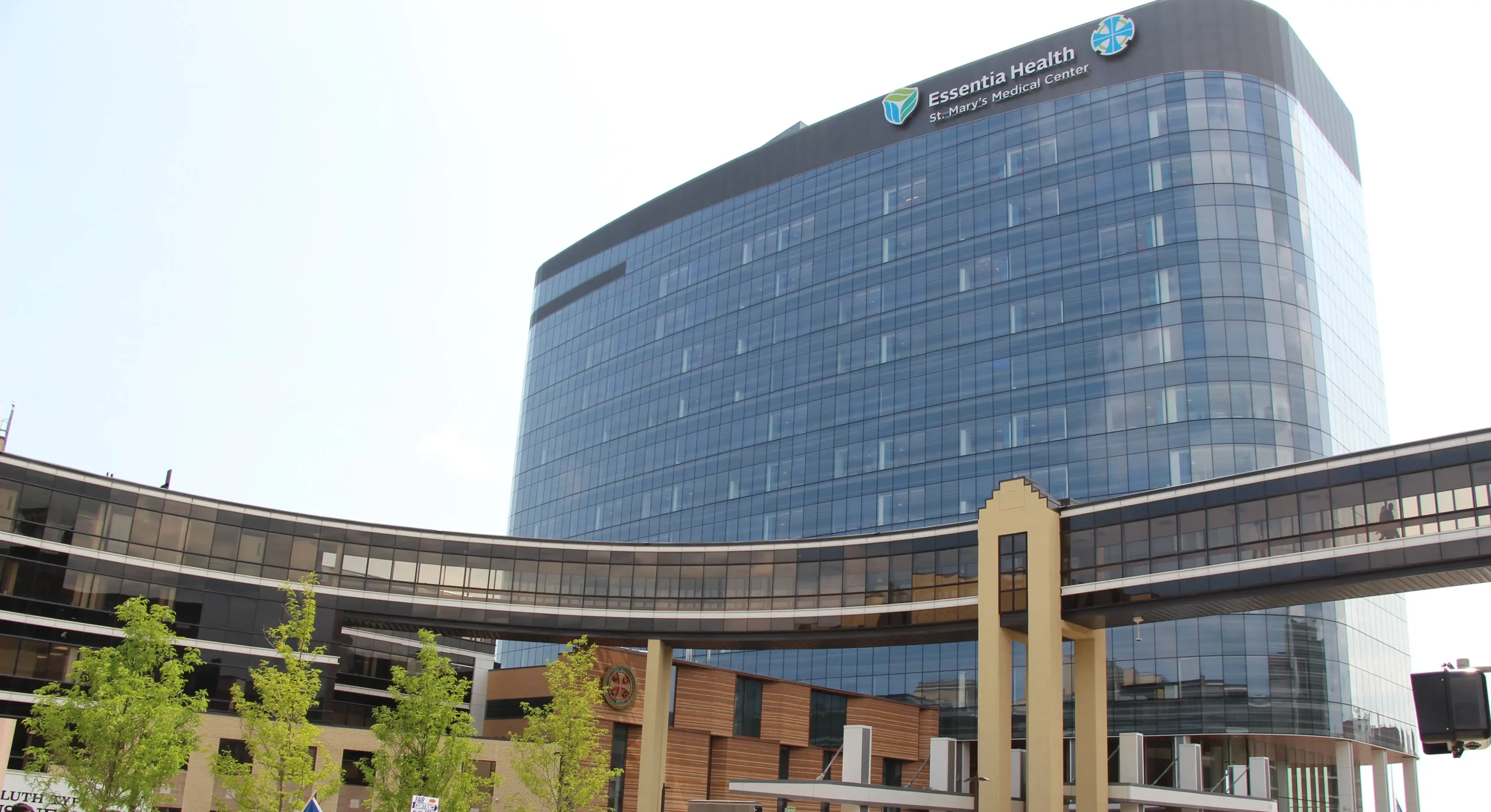by Ann Foisy, RN
MNA Member
Hello, my name is Ann. I’m a nurse on the 8th floor at Fairview Southdale Hospital. We are a Med-Surg specialty unit for Oncology and Urology, but we’re known to kind of “catch-all.” We’re the floor that ends up with and Heart Center patients when those two units are full.
I love my floor, I love my coworkers, and I love my patients. I came to nursing later than some, graduating at 31 in 2008. It’s hard, it makes me think, it makes me sad, it makes me so happy and fulfilled, and I can’t see myself ever doing anything else.
But last month, things got a little too real.
I moved out of my tiny east Bloomington rambler and into a hotel, away from my beautiful daughter with anxiety and my handsome son with seasonal allergy-sensitive asthma. I left my husband, who is considered an “essential” automotive technician, still working full-time to care for them alone.
Why did I do this? I don’t want to infect the people I love with COVID-19. I have a detached garage, so I can’t change out of my scrubs that might be contaminated before coming into my home. To get to the only bathroom we have so I can shower off any contaminates on my skin, I have to pass less than six feet from my son’s bedroom. There is no room to distance in my home, but also no hospital-issued scrubs for me at work to launder and leave behind before I go home. There is not even a shower—they bolted that bathroom door shut two years ago because they thought we weren’t washing our hands in it.
My diabetic mother has always insisted on providing childcare to her grandbabies. We lost my Dad, her husband of 50 years, to a horrible respiratory death 18 months ago. It’s more important than ever to her now that she be able to see them. My mom is a very healthy diabetic who carefully follows the regime to manage her symptoms. Still, this virus is unpredictable and we know that people with diabetes are at risk for having a severe response to COVID-19. I would not be able to live with myself if I didn’t do everything my power to keep her safe too.
On the Oncology unit where I work with immune-compromised cancer patients, we were assured we would not see COVID-19 patients, but I knew they would slip through and they did. Immediately.
Of course, they moved to another unit two days later, when they became a Patient Under Investigation (PUI) for COVID-19. In other words, they have been tested for COVID-19 but have not received their results. We asked early on if we had any cases in the hospital, and were told it would violate patient privacy rights (HIPAA) to let us know that. We did not ask who or where, we just wanted to know if they were in the building.
I cannot and will not be the reason for my family getting sick because we are forced to treat people who might be infected as if they are not infected, on a floor with confirmed COVID-19 cases. A hospital is not a courtroom. You do not treat infectious pathogens like they are innocent until proven guilty. When these patients are found NOT to have COVID-19, they are moved from floors with infected patients to other units throughout the hospital.
Per World Health Organization guidelines, all healthcare workers should consider the possibility of SARS-CoV-19 in ANY patient under their care. However, our screening process for patients to rule out COVID-19 is, to be honest, not great. Usually, if we think a patient is infected with something highly-contagious, they are isolated away from other patients, and we take special precautions to prevent the spread of the disease. That’s how it should be with any fever, any pneumonia, and any weakness until proven otherwise. Blame the lack of COVID-19 tests if you want, but there is no treatment for this so you can “treat” anyone by taking precautions until they are well enough to discharge. The tests are really just a reporting tool.
The rules change daily, so much that I cannot keep up. Additionally, the re-use of Personal Protective Equipment (PPE) does not sit right with me. This is not how we should do things—just “good enough” isn’t good enough!
I will continue to show up. I will hold hands and deliver extraordinary care to my patients, who are alone and scared. I will comfort those who are forced to die alone. I will talk to them and tell my jokes to take their minds off this horrible virus. I will tell them that they are all safe. I will tell them their hair looks great! I will come in every day with a cheerful attitude and a smile because anything else does them and me no good.
Until this is over, I will only see my kids from six feet away, downwind, in the yard. I will also be praying we do better and that this ends well and soon.



